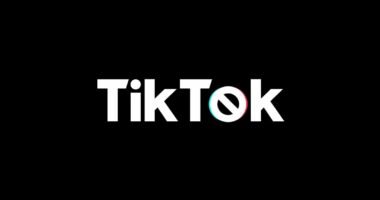Social media has become a crucial component of digital marketing strategies for businesses across all industries and sizes. These platforms provide unique opportunities for brands to engage with their target audience, foster relationships, and drive user interaction. The proliferation of platforms like Facebook, Instagram, Twitter, and LinkedIn has enabled businesses to reach a global audience and establish a robust online presence.
One of the primary functions of social media in digital marketing is its ability to humanize brands. Through these platforms, companies can showcase their personality, core values, and organizational culture, facilitating a more personal connection with their audience. This humanization process helps build trust and loyalty among consumers, ultimately leading to increased brand recognition and customer retention.
Moreover, social media serves as a platform for businesses to share valuable content, engage in conversations, and provide customer support, all contributing to a positive brand image and enhanced customer experience. Social media also plays a vital role in driving website traffic and generating leads. By sharing compelling content and strategic calls-to-action, businesses can direct their social media followers to their website, where further brand engagement and potential purchases can occur.
Additionally, social media platforms offer targeted advertising capabilities, allowing businesses to reach specific demographics and interest groups, which can result in higher conversion rates. Understanding and leveraging the role of social media in digital marketing is essential for businesses seeking growth and success in the modern digital landscape.
Key Takeaways
- Social media plays a crucial role in digital marketing by providing a platform for direct interaction with customers and targeted advertising.
- Leveraging influencer databases can significantly enhance the reach and impact of social media marketing campaigns.
- Different social media platforms offer unique opportunities for targeted marketing, and understanding their nuances is key to success.
- Creating engaging and relevant content is essential for capturing and retaining the attention of social media users.
- Implementing data analytics allows for optimization of social media marketing strategies by identifying trends and measuring campaign performance.
- Building a strong brand presence through social media marketing involves consistent messaging, visual identity, and customer engagement.
- Integrating social media marketing with overall digital marketing strategy ensures a cohesive and effective approach to reaching and engaging with customers.
Leveraging Influencer Database for Effective Social Media Marketing
Targeted Partnerships
Utilizing an influencer database enables businesses to identify influencers with a strong presence on specific social media platforms and a following that matches their target demographic. This leads to more targeted and effective influencer partnerships, as the content created by the influencer is more likely to resonate with the intended audience.
Measuring Success
Leveraging an influencer database also helps businesses track the performance of influencer campaigns, measure ROI, and identify top-performing influencers for future collaborations. This allows businesses to refine their influencer marketing strategy and optimize their budget allocation.
Streamlined Process
Working with influencers from a database streamlines the process of finding and partnering with influencers. Businesses can access a database that provides detailed information about each influencer, including their audience demographics, engagement rates, and previous brand collaborations. This makes it easier for businesses to find the right influencers for their campaigns and build long-term relationships that benefit both parties.
Overall, leveraging an influencer database is a valuable strategy for businesses looking to maximize the impact of influencer marketing on social media.
Utilizing Different Social Media Platforms for Targeted Marketing

Each social media platform offers unique features and demographics, making it essential for businesses to utilize different platforms for targeted marketing. Understanding the strengths and weaknesses of each platform can help businesses tailor their content and advertising strategies to effectively reach their target audience. For example, Instagram is known for its visual content and younger demographic, making it ideal for businesses in industries such as fashion, beauty, and lifestyle.
On the other hand, LinkedIn is a professional networking platform that is well-suited for B2B marketing and reaching a more professional audience. By utilizing different social media platforms, businesses can diversify their marketing efforts and reach a wider range of potential customers. This allows for more targeted messaging and content that resonates with specific audiences, ultimately leading to higher engagement and conversion rates.
Additionally, utilizing different platforms enables businesses to take advantage of the unique advertising options available on each platform, such as Instagram’s shoppable posts or LinkedIn’s sponsored content. Furthermore, utilizing different social media platforms allows businesses to stay ahead of trends and adapt to changes in consumer behavior. As new platforms emerge and existing platforms evolve, businesses can experiment with different strategies and adapt their marketing efforts to meet the changing needs of their audience.
This flexibility is essential for staying competitive in the ever-changing landscape of social media marketing. Overall, utilizing different social media platforms for targeted marketing is crucial for businesses looking to maximize their reach and impact on social media.
Creating Engaging Content for Social Media Marketing
| Metrics | Data |
|---|---|
| Engagement Rate | 10% |
| Click-Through Rate | 5% |
| Shares | 100 |
| Comments | 50 |
Creating engaging content is essential for successful social media marketing. With the vast amount of content being shared on social media every day, businesses need to create content that stands out, captures attention, and drives meaningful engagement with their audience. This requires a deep understanding of the target audience’s preferences, interests, and behaviors, as well as a strategic approach to content creation that aligns with the brand’s goals and values.
One effective strategy for creating engaging content is to focus on storytelling. By telling compelling stories that resonate with the audience’s emotions and experiences, businesses can create a deeper connection with their followers and build brand loyalty. This can be achieved through various forms of content, such as videos, images, blog posts, and user-generated content that showcase real-life experiences and testimonials related to the brand.
Additionally, creating interactive content can help increase engagement on social media. Polls, quizzes, contests, and interactive posts encourage followers to participate and share their opinions, ultimately leading to higher levels of engagement and organic reach. This type of content not only captures attention but also encourages meaningful interactions with the brand’s audience, fostering a sense of community and connection.
Moreover, creating visually appealing content is crucial for capturing attention on social media. High-quality images, videos, and graphics can help make a brand’s content stand out in crowded social media feeds and capture the audience’s interest. Utilizing eye-catching visuals that align with the brand’s identity and messaging can help create a strong visual presence on social media that resonates with the target audience.
Overall, creating engaging content is essential for driving success in social media marketing and building meaningful connections with followers.
Implementing Data Analytics for Social Media Marketing Optimization
Data analytics plays a crucial role in optimizing social media marketing strategies and maximizing their impact. By analyzing key metrics such as engagement rates, reach, click-through rates, and conversion rates, businesses can gain valuable insights into the performance of their social media campaigns and make data-driven decisions to improve results. This allows businesses to identify trends, understand audience behavior, and optimize their content and advertising strategies for better performance.
One way to implement data analytics for social media marketing optimization is through A/B testing. By testing different variations of content or advertising campaigns and analyzing the results, businesses can gain insights into what resonates best with their audience and drives the highest levels of engagement or conversion. This iterative approach allows businesses to continuously improve their strategies based on real-time data and make informed decisions about future campaigns.
Additionally, data analytics can help businesses identify opportunities for growth and expansion on social media. By analyzing audience demographics, interests, and behaviors, businesses can uncover new target segments or niche markets that they may not have previously considered. This allows for more targeted marketing efforts that reach untapped potential customers and drive business growth.
Moreover, data analytics can help businesses track the ROI of their social media marketing efforts. By measuring the impact of social media campaigns on key business metrics such as website traffic, lead generation, and sales, businesses can understand the true value of their investment in social media marketing. This allows for better allocation of resources and budget optimization based on what drives the highest return on investment.
Overall, implementing data analytics is essential for optimizing social media marketing strategies and driving meaningful results for businesses.
Building a Strong Brand Presence through Social Media Marketing

Consistency Across All Platforms
One effective strategy for building a strong brand presence on social media is to maintain consistency across all platforms. Consistent branding helps create a cohesive experience for followers across different social media channels, reinforcing the brand’s identity and making it easily recognizable. This includes using consistent visual elements such as logos, colors, fonts, and imagery that align with the brand’s overall aesthetic.
Creating Valuable and Relevant Content
Additionally, building a strong brand presence requires creating valuable and relevant content that aligns with the brand’s values and resonates with its audience. By sharing content that educates, entertains, or inspires followers, businesses can position themselves as thought leaders in their industry while also building trust and credibility among their audience. This type of content helps reinforce the brand’s identity and values while also driving engagement and loyalty among followers.
Meaningful Engagement with Followers
Moreover, building a strong brand presence involves engaging with followers in meaningful conversations and interactions. Responding to comments, messages, and mentions on social media shows that the brand values its audience’s input and cares about building relationships. This type of engagement fosters a sense of community around the brand and helps strengthen its presence on social media.
Overall, building a strong brand presence through social media marketing requires a strategic approach that focuses on consistency, value-driven content creation, and meaningful engagement with followers.
Integrating Social Media Marketing with Overall Digital Marketing Strategy
Integrating social media marketing with an overall digital marketing strategy is essential for maximizing its impact on business growth. Social media should not operate in isolation but rather complement other digital marketing efforts such as email marketing, search engine optimization (SEO), content marketing, and paid advertising. By integrating these strategies cohesively, businesses can create a unified approach that drives consistent messaging across different channels while also maximizing reach and engagement.
One way to integrate social media marketing with an overall digital marketing strategy is through cross-channel promotion. By promoting content from other digital marketing channels on social media (and vice versa), businesses can increase visibility across different platforms while also driving traffic back to their website or other digital assets. For example, promoting blog posts or email newsletters on social media can help increase readership while also driving website traffic.
Additionally, integrating social media marketing with other digital marketing efforts allows businesses to leverage data from different channels to inform their strategies. For example, insights from email marketing campaigns or website analytics can be used to inform content creation or advertising strategies on social media. This data-driven approach ensures that all digital marketing efforts work together cohesively towards common goals.
Moreover, integrating social media marketing with an overall digital marketing strategy allows for better alignment of messaging across different channels. Consistent messaging helps reinforce the brand’s identity while also ensuring that followers receive a unified experience regardless of which channel they engage with. This type of integration fosters brand recognition and loyalty among followers.
Overall, integrating social media marketing with an overall digital marketing strategy is essential for creating a cohesive approach that maximizes reach, engagement, and impact across different channels while also driving business growth.
If you’re interested in learning more about the impact of social media marketing on digital marketing, you should check out this article on the role of influencers in digital marketing. It provides valuable insights into how influencers can effectively promote brands and products through social media platforms, and the potential benefits for businesses looking to expand their digital marketing strategies.
FAQs
What is social media marketing?
Social media marketing is a form of digital marketing that involves creating and sharing content on social media platforms to achieve marketing and branding goals. It involves activities such as posting text and image updates, videos, and other content that drives audience engagement.
Is social media marketing a part of digital marketing?
Yes, social media marketing is a part of digital marketing. Digital marketing encompasses all marketing efforts that use an electronic device or the internet, and social media marketing is one of the key components of digital marketing.
What are the benefits of social media marketing in digital marketing?
Some of the benefits of social media marketing in digital marketing include increased brand awareness, improved brand loyalty, higher conversion rates, better search engine rankings, and increased inbound traffic.
Which social media platforms are commonly used for social media marketing?
Commonly used social media platforms for social media marketing include Facebook, Instagram, Twitter, LinkedIn, Pinterest, and Snapchat. The choice of platform depends on the target audience and the type of content being shared.
How does social media marketing differ from traditional marketing?
Social media marketing differs from traditional marketing in that it allows for more targeted and personalized marketing efforts, real-time interaction with customers, and the ability to track and measure the success of campaigns more effectively. Traditional marketing methods, such as print ads and TV commercials, are generally less interactive and have limited targeting capabilities.






